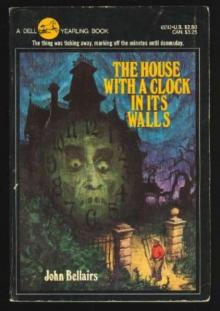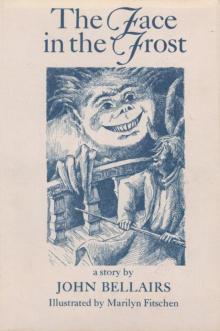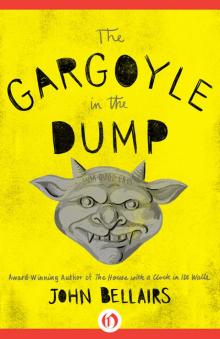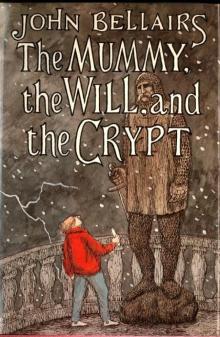- Home
Page 2
Page 2
 The Curse of the Blue Figurine
The Curse of the Blue Figurine Chessmen of Doom
Chessmen of Doom Secret of the Underground Room
Secret of the Underground Room The House With a Clock in Its Walls
The House With a Clock in Its Walls The Vengeance of the Witch-Finder
The Vengeance of the Witch-Finder The Face in the Frost
The Face in the Frost Revenge of the Wizard's Ghost
Revenge of the Wizard's Ghost Spell of the Sorcerer's Skull
Spell of the Sorcerer's Skull Eyes of the Killer Robot
Eyes of the Killer Robot Mummy, the Will, and the Crypt
Mummy, the Will, and the Crypt Wrath of the Grinning Ghost
Wrath of the Grinning Ghost The Mansion in the Mist
The Mansion in the Mist The Doom of the Haunted Opera
The Doom of the Haunted Opera The Bell, the Book, and the Spellbinder
The Bell, the Book, and the Spellbinder The Gargoyle in the Dump
The Gargoyle in the Dump The Hand of the Necromancer
The Hand of the Necromancer The Mummy, the Will, and the Crypt
The Mummy, the Will, and the Crypt Drum, the Doll, and the Zombie
Drum, the Doll, and the Zombie The Specter from the Magician's Museum
The Specter from the Magician's Museum The Letter, the Witch, and the Ring
The Letter, the Witch, and the Ring The Treasure of Alpheus Winterborn
The Treasure of Alpheus Winterborn The Dark Secret of Weatherend
The Dark Secret of Weatherend The Figure in the Shadows
The Figure in the Shadows